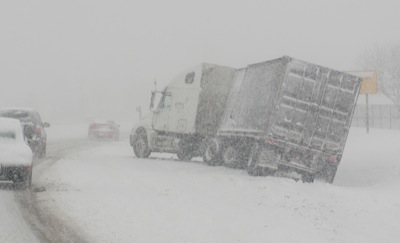Tuesday, March 24th, 2015
Leaders search for way to repair crumbling streets
By William Kincaid
CELINA - Residential streets continue to crumble as city officials struggle to find a way to pay for much-needed repairs.
West Lisle Street near the Mercer County Fairgrounds is a "a war zone," councilman Bill Sell said at Monday night's council meeting. Councilman Mark Fleck expressed fear the city could end up resorting to chip-and-sealing roads, an approach taken in the 1980s that he said led to a great uproar because of the dust it produced.
"We don't want to go that far backward and we have to do that as an emergency," Fleck said.
No easy answer exists to the very costly problem, mayor Jeff Hazel stressed to council members at the regular meeting.
Though the city sits upon a comfortable general fund carryover of $2.84 million, as Hazel noted in his state of the city address, a bulk of it comes from the additional 0.5 percent income tax earmarked exclusively for police and fire expenses and cannot be used for streets.
City officials attempted to expand the use of that money for street repairs but the ballot measure was defeated on Election Day. The levy, originally passed in November 2010, expires at the end of 2017, Hazel said.
"I'm certainly willing to entertain however we collectively want to do this, because I want the streets fixed also. They're deplorable throughout many of our residential streets," Hazel said.
But paving over run-down streets is simply a temporary solution unless the underlying infrastructure is addressed first, Hazel added.
"When we do tackle the streets that we go after, we're not just putting a Band-Aid across the top," councilman Jeff Larmore said.
In 2014, multiple blocks of streets - Dogwood Drive, Oak Street, Magnolia Street, Garman Avenue, Margo Lane and North Walnut Street - were repaved for $169,726.
"The streets are about $40 million behind," councilman Larmore said.
"$169,000 is kind of a snail's pace but (we) just can't do much about funding," council president Jason King said.
Fleck asked how Celina can pick up the pace on street work.
"Certainly that half percent would have been a way for us to have funded that," Hazel said.
"You can't stop everything else as a result of one thing being not passed," councilman June Scott said. "You've got to continue on."
The city hasn't abandoned maintaining the streets, Hazel said. Crews continue to patch the streets, though cold patching in the winter costs three times the price of hot mix and doesn't stand a chance against the blade of a plow, Hazel pointed out.
City officials soon will discuss whether to try again to persuade voters to approve a ballot measure allowing the city to use part of the 0.5 percent income tax, which generates about $1.65 million annually, for street repairs.
"Certainly we want the voters to have a say-so in that, and I think by and large the residents out there would like the streets fixed. They want them paved," Hazel said. "I think they'd be willing to pay for it because that has to be a separate fund."
Some residents, Scott said, question why the city is committing funds for a possible grant to develop the Bryson Park District instead of using that money for streets.
The newly formed Celina Park Advisory Board, has its sights set on winning up to $3 million from Frontier Communications. The first grant deadline is March 25. Frontier will award $35,000 to 50 applicants, which must provide a $15,000 match. That money would pay for an economic development consultant to assist Celina in developing a more detailed application for future rounds.
To begin with, $15,000 wouldn't go very far to improve streets, Hazel said. It's important for city officials to look for the best place to use - and leverage - its funds for the best results, Hazel said.
"Should we choose to just back off the grant and the opportunity to maybe be awarded $3 million we can do that as well," Hazel said.
Committing $15,000 isn't wasteful spending when the city stands to possibly leverage millions of dollars for the benefit of the city, council president Jason King said.
"For me, it's a cut-and-dried answer to that question that people are asking," he said.
"I'm not so sure it's cut-and-dried, not to the public," Scott said.
"We just have to come up with a program, and we got to put our heads together, think about how we're going to sway the public about how important it is," Larmore said. "You just can't rely on them hitting a pothole and spilling their coffee, they already know that."
Hazel said the city has a map identifying street conditions and prioritizing future street restorations.
Council members intend to schedule a commitee meeting to discuss the matter further.

